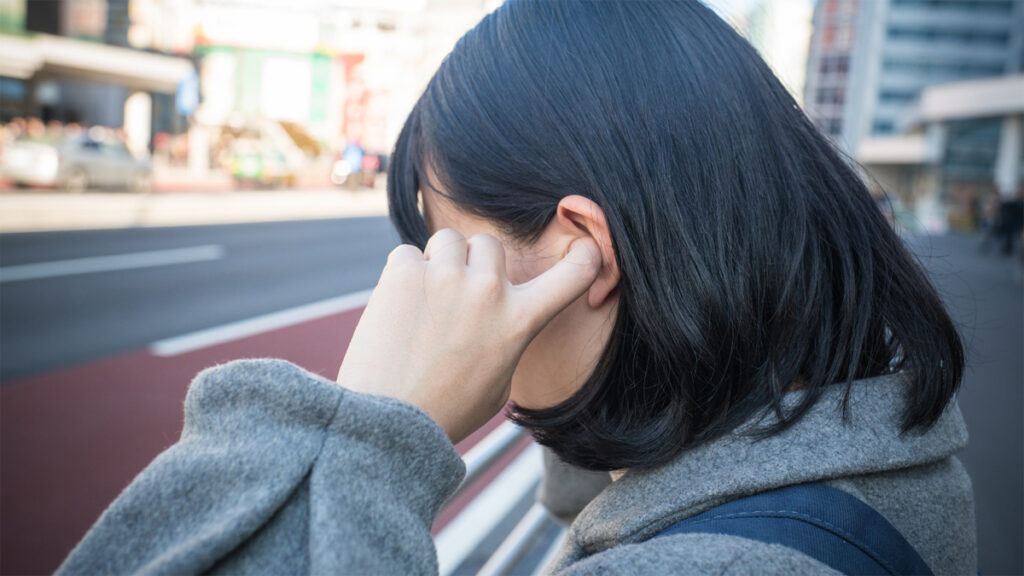Itchy ears are a common problem that, while annoying and bothersome, are not usually harmful or a cause for concern. There are a lot of causes for itchy ears that will be discussed later, but the important thing to remember is that no matter the cause of the itch, it is never a good idea to stick any objects in your ears. As annoying as the itch may be, things would be a lot worse if you damage your inner ear by trying to scratch. Read the rest of this article to learn more about the causes, treatments, and home remedies that can help with itchy ears.
What Can Cause Itchy Ears?
There are many different things that could cause itchy ears, and 10 of those potential causes are:
- Ear Infection. Itchy ears can be an early sign that an ear infection is developing. Generally, bacteria and viruses can cause ear infections, and usually in conjunction with a cold or allergies. Infections can also occur because of water building up in your ear, or excess earwax.
- Earwax Buildup. Earwax buildup or blockage can both cause itchy ears and loss of hearing. Your ears constantly produce earwax, but they also rid your body of earwax so that most people never have to clean their ears at all. Itching ears, infections, and other problems may occur if your ear produces excess earwax.
- Food Allergies. An allergic reaction to certain types of foods may cause itchy ears in some people.
- Dry Ears. The wax in your ears helps to keep them lubricated and clean. If your ears do not produce enough wax, or if you clean them too often, it can dry your ears out and cause irritation and itchiness.
- Cleaning Your Ears. Not only can cleaning your ears too often remove needed earwax, it can also push the wax further toward your inner ear. This may result in irritation that leads to pain and itchiness.
- Swimmer’s Ear. If water gets trapped in your ear, it can cause a condition called acute otitis externa or “swimmer’s ear.” This can make your ear feel very itchy.
- Skin Allergies. Allergic rhinitis, also known as hay fever, occurs when you have an allergic reaction to particles in the air. One of the common symptoms is that your ears itch.
- Hearing Aids. Hearing aids can cause itchiness in your ear because of their plastic coating, pressure from the hearing aid, or excess water being trapped. If you need a hearing aid, do not let itchiness be a reason you do not get one. Your audiologist can help make sure you get the right one.
- Eczema/Psoriasis. These two, along with some other skin conditions and skin diseases, can cause your ears to itch, become inflamed, or to form scaly patches around the ear.
- Seborrheic Dermatitis. This is a common skin condition that most often affects your scalp. Among other organs, seborrheic dermatitis can also affect your ears, causing itchiness and discomfort.
Why Are Ears So Sensitive?
Because of their function, your ears are one of the most sensitive organs in your body. They convert pressure fluctuations to sound, they are vital for balance, and for the most part, they clean and take care of themselves. The environment in your inner ear also makes them very sensitive. The warmth and moisture in the ear canal make them susceptible to infection while the earwax that is made to protect the ear can sometimes make it worse. The combination of the environment and the intricate – almost miraculous – work that they do make them one of the most sensitive organs in the human body.
Hearing Aids And Itchy Ears
Itching is one of the most common complaints associated with hearing aids. The ear canal has very delicate skin, and even a stray hair can cause it to itch, let alone a device like a hearing aid. In fact, one study showed about 40% of hearing aid wearers cited itchiness as a side effect.
Whatever you do, do not let itchy ears be the thing that prevents you from wearing hearing aids if you need them. The key is to not just purchase a hearing aid from a website or from a third party. Find an audiologist in your area who can find the right hearing aid for you, and then fit it to your ear for optimal comfort and performance.
Can Earbuds Cause An Itchy Inner Ear?
If you frequently wear earbuds, overuse can lead to irritation, swelling, and itchiness of the inner ear. If you use earbuds a lot, it can even lead to cases of swimmer’s ear, especially if the earbuds are not clean. With air pods and other wireless earbuds growing in popularity, this is something that people need to be extra mindful of.
Can You Prevent Itchy Ears?
There are things you can do to prevent itchy ears. The best thing anyone can do to prevent itchy ears is to not put anything in your ears. Many people are in the habit of using cotton swabs or other objects to “clean” their ears; however, this can actually remove protective earwax, damage the ear, or even push earwax deeper into the ear. Some other things you can do to prevent itchiness include:
- Wearing ear plugs while swimming.
- Using a clean towel to dry the outside of your ears.
- Not overusing earbuds.
- Softening ear wax with over-the-counter kits when it begins to build up.
What Can I Do To Relieve Itching?
If you have persistently dry or itchy ears, you should see a doctor to find out the underlying cause and to come up with a solution. It cannot be overstated that you should not put anything inside your ears to relieve the itching.
When To See A Doctor
If you do not know the cause of the itching, have unsuccessfully tried a home remedy, or are experiencing swelling or pain in your ears, you should see a doctor right away. At the very least, a doctor could safely lead you to at-home remedies in the future and save you any type of pain or discomfort from doing something you should not. At best, a doctor will heal your issues quickly and help you to not face those issues again.
How Are Itchy Ears Treated?
In the case of mild itchiness, home remedies may work. If dry skin is causing the itchiness, a few drops of baby oil could help moisturize the skin. This could also work for itchiness from a hearing aid. Getting your hearing aid correctly fitted and adjusted is also a great step in treatment. Drying the outside of the ear could help, as well as long as you do not put any object inside your ear. Managing the underlying cause of the itchiness in the case of food allergies, skin conditions, or hay fever should also alleviate itchiness and hearing loss. The best thing you can do if the case is severe enough or if you cannot figure out the cause is to see your local ENT or audiologist.


